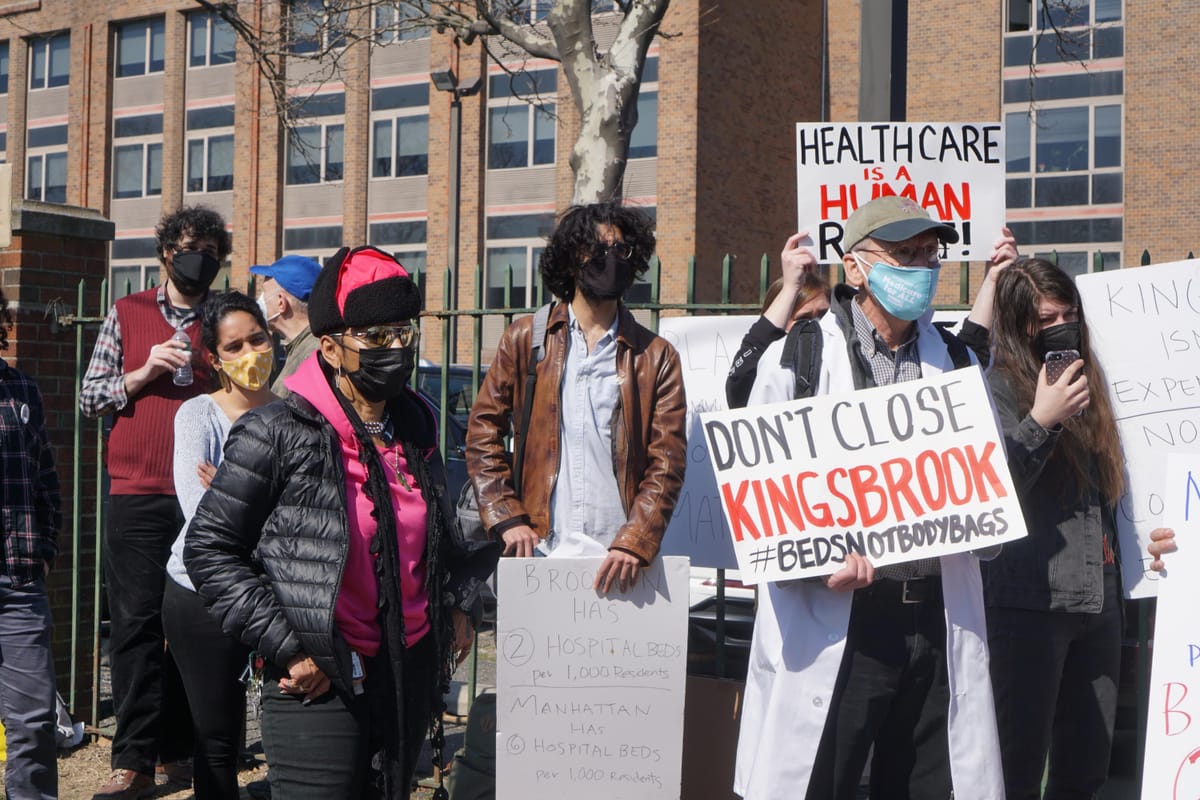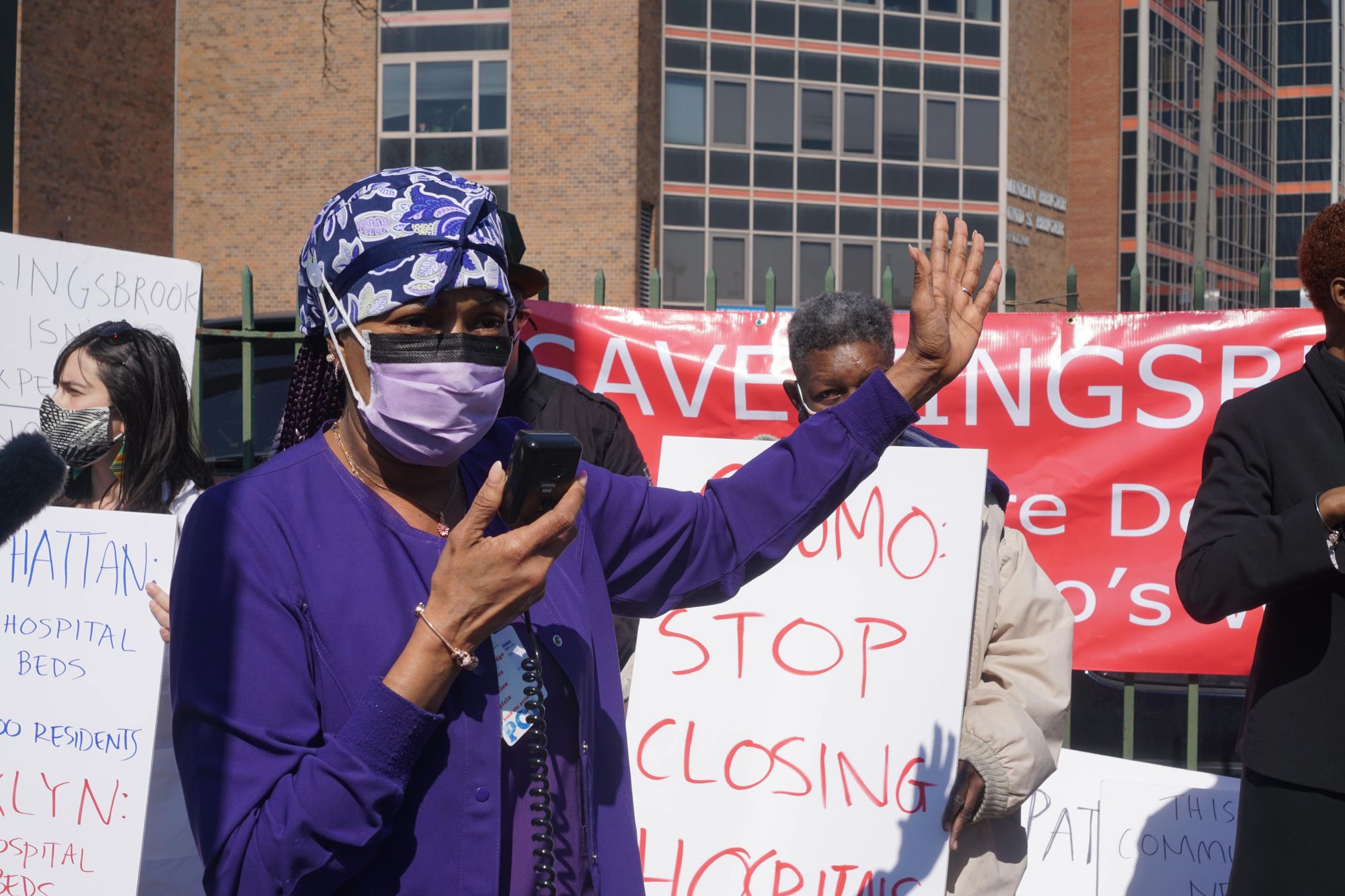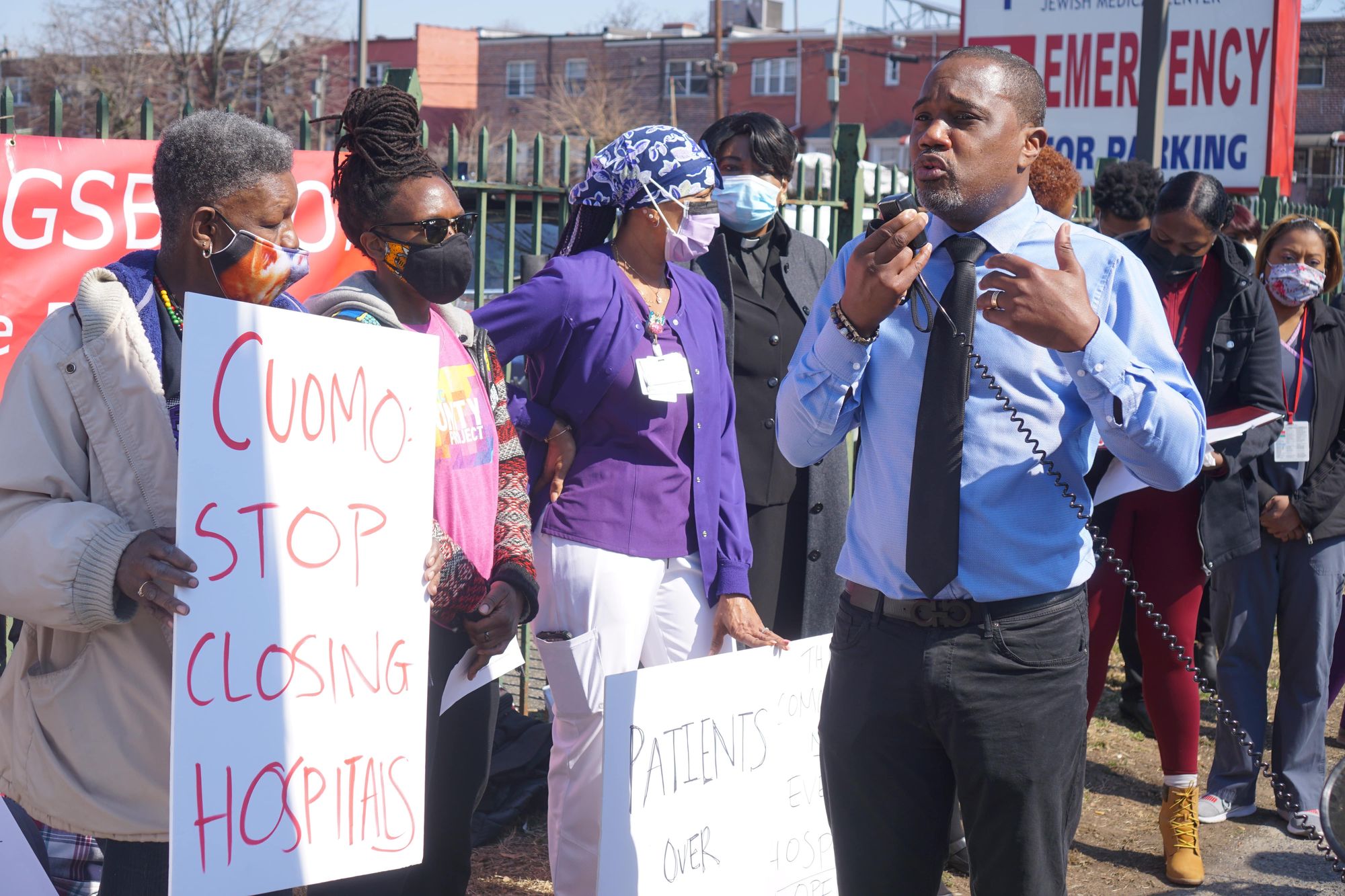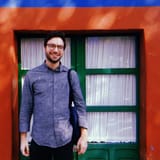Protestors Call for Cancellation of Kingsbrook Hospital Consolidation


Several dozen activists, hospital staff and clergy gathered outside Kingsbrook Jewish Medical Center in East Flatbush on Thursday to demand the state abandon its plan to transform the struggling hospital.
One Brooklyn Health System, the nonprofit entity that controls Kingsbrook, plans to eliminate about 200 inpatient beds at Kingsbrook in favor of a “medical village” focused on providing primary and specialty care, along with new housing.
But the protestors, organizing under the name Kingsbrook Community Action Committee, argue the removal of the beds amounts to a hospital closure in a low-income, majority-Black neighborhood that has been hit hard by the coronavirus pandemic.
“My family, my friends, the community needs a hospital to go to when they’re ill,” said Arlene Meertens, a Kingsbrook patient care technician who spoke at the rally. “They need a safety net hospital, and Kingsbrook is a safety net hospital.”
The plan is part of Governor Andrew Cuomo’s $1.4 billion Vital Brooklyn initiative, intended to address health, social and economic disparities in low-income Brooklyn neighborhoods. About half of that money is being directed to One Brooklyn Health System, which also oversees Brookdale Hospital and Interfaith Medical Center.
Under the plan, in-patient services would be consolidated within those two institutions, while Kingsbrook’s in-patient medical-surgical beds, which at their peak numbered 163, along with dozens of additional beds for patients receiving treatment for coronary issues, traumatic brain injuries, and coma recovery, would be eliminated.
LaRay Brown, One Brooklyn’s CEO, said the transformation plan would help connect residents with primary care services so that they would be less likely to need an overnight hospital stay. One Brooklyn’s other institutions along with nearby SUNY Downstate Medical Center and Kings County Hospital Center, Brown said, would be able to handle remaining inpatient needs.
“As we look at trends in healthcare delivery, those trends are moving away from inpatient care,” Brown told Bklyner. “The need of individuals to address things like diabetes and other chronic health conditions like asthma, the things that are killing folks, by the time someone needs to be in a bed, we haven’t done our job. It’s too late.”
The plan has the backing of most local elected officials along with unions 1199 SEIU and the New York State Nurses Association.

But protesters argue the pandemic proves the ongoing need for inpatient bed capacity, and say the closure exacerbates health disparities between rich and poor neighborhoods. There are currently 2.2 hospital beds for every 1,000 residents in Brooklyn, far fewer than the 6.4 beds per 1,000 residents that exist in Manhattan.
At the rally, attendees accused Cuomo of kowtowing to real estate and private healthcare interests, and redirecting healthcare funding in the name of austerity. And they criticized One Brooklyn’s board chair, billionaire Alexander Rovt, for his cozy relationship with the governor. Rovt and his associates have contributed over $1 million to Cuomo’s campaign coffers, and he has also given money to former president Donald Trump.
“Roft knows what too many of us do not,” said Keith Gordon, a member of the NYC Democratic Socialists of America, who spoke at the rally. “In New York State, both sides are owned by the ruling class.”
Also notable was the presence of Khari Edwards, a candidate for Brooklyn Borough President who, until August 2020, worked within One Brooklyn, as Vice President of External Affairs at Brookdale Hospital.

“I don’t feel that the plan, especially the communication with the community, and I’m saying this as somebody from the inside, was done properly,” Edwards said, seemingly choosing his words carefully.
“I’m supporting you,” he said to protestors, “because I believe this plan can go forward in a good way. I believe that Kingsbrook is a necessity in this community.”
Other organizations represented included the advocacy group Commission on the Public’s Health System and Black Lives Matter Brooklyn.
The transformation plan has been in the works for years, but was put on hold in March 2020 hospitals across the city were overwhelmed by coronavirus patients. In October, with case counts low, the process kicked back into gear. But when the city was hit with a second wave of infections, One Brooklyn paused the process again, and has not yet announced a restart date.
Now, protesters want that pause to last indefinitely. Chanting and holding signs with slogans like “beds, not body bags,” protestors listed a series of demands that include scrapping the 2016 restructuring plan created by Northwell Health, which they call “undemocratic and outdated,” and a moratorium on all hospital closures throughout the city.
Meanwhile, Brown is juggling the demands of the controversial restructuring with a more immediate concern: the ongoing vaccination of Brooklyn communities against the coronavirus. She said Kingsbrook had administered a total of 6,160 vaccines as of Wednesday night, not including those given to staff. System-wide, One Brooklyn has administered about 17,000 vaccines.
Still, despite the challenges posed by the preceding year, Brown os confident that the transformation plan will move forward once her team, state government and the labor unions decided the safest time to do so.
“I hope that we would not need to continue to fight about beds but instead discuss, what are the range of services we can put forward to keep people healthy and address the social determinants of health? So we can see a different day in regards to some of the issues around health equity.”




